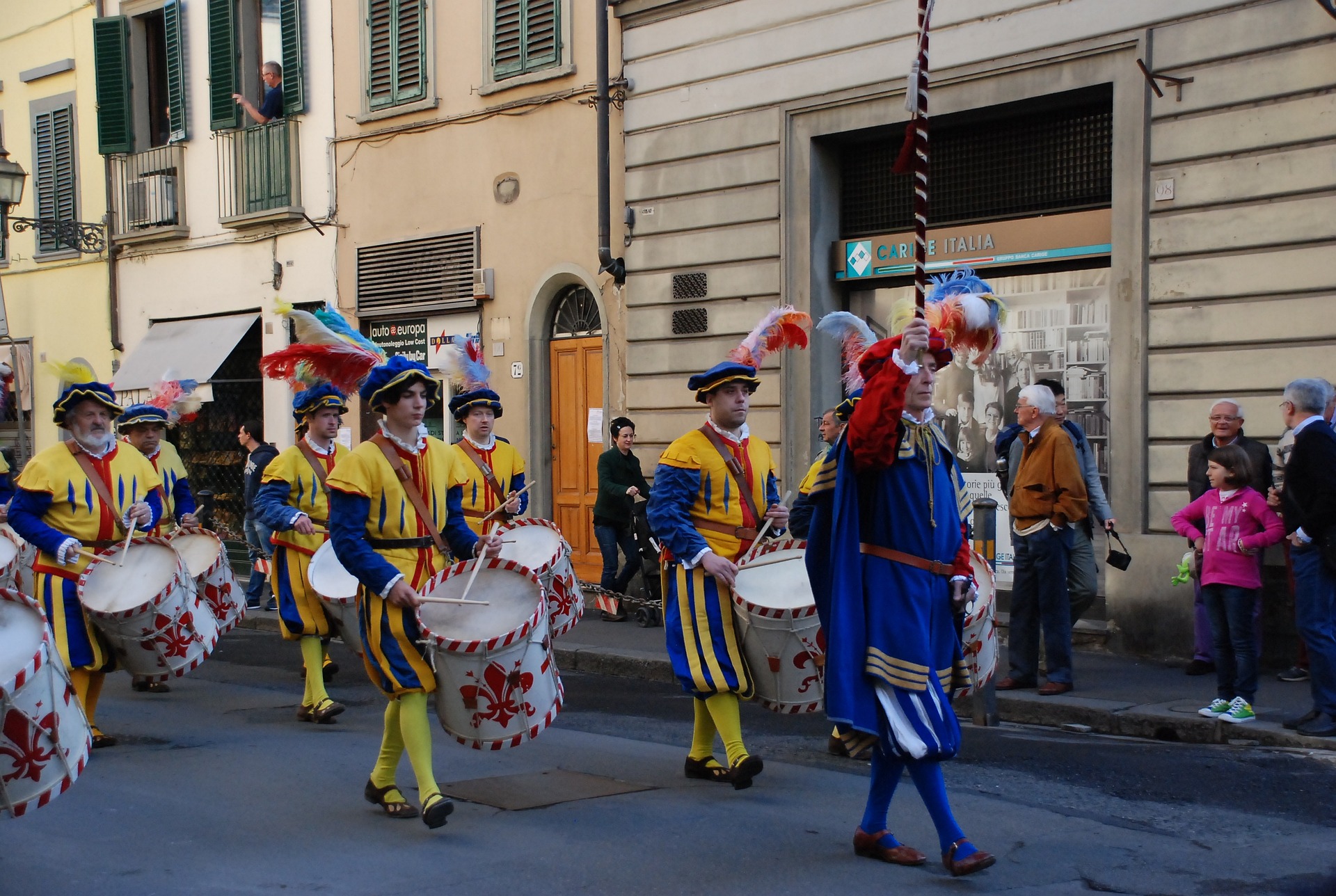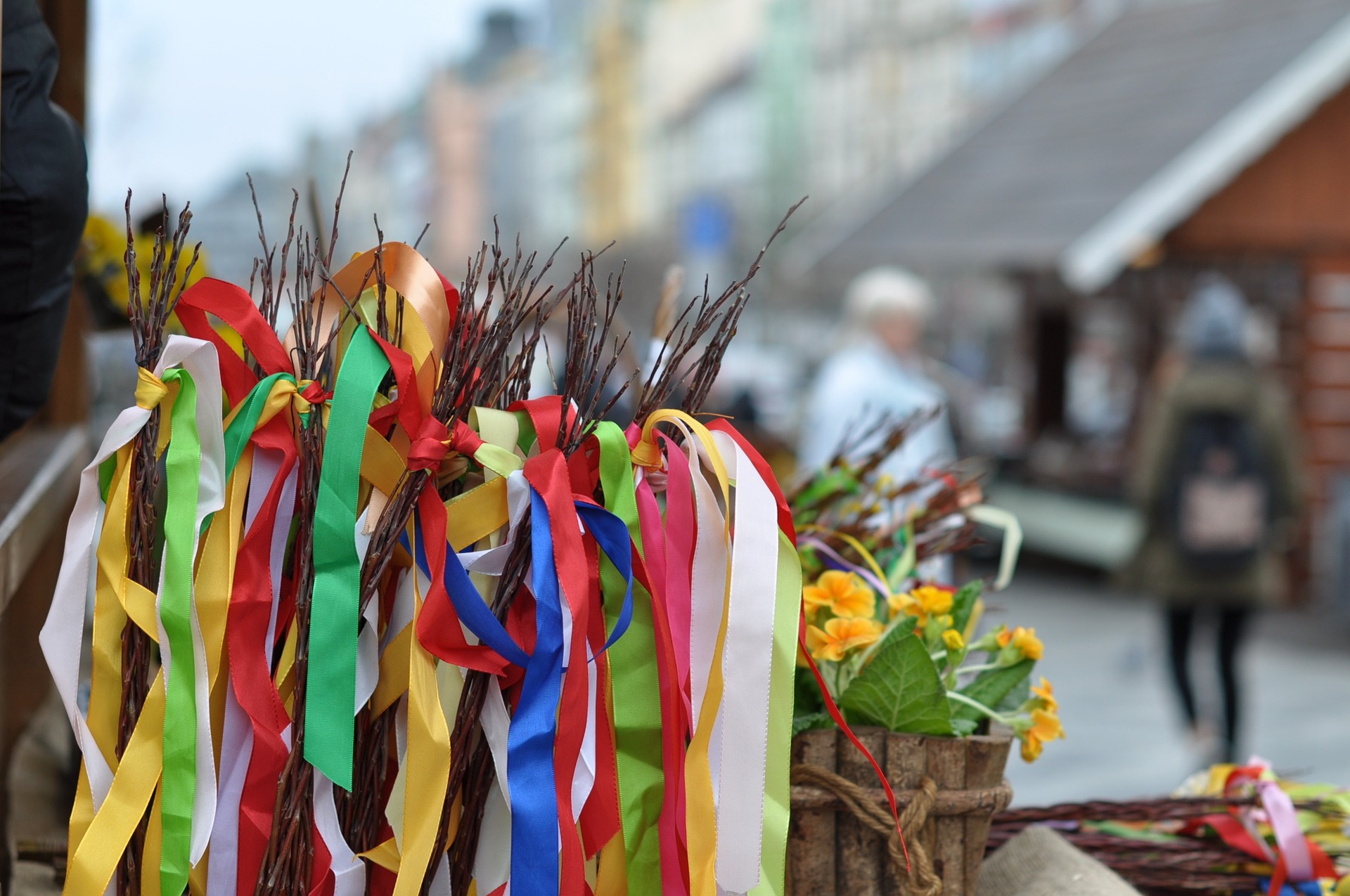Easter Celebrations
& Traditions in Europe

Religious, Traditional, Unique, Elaborate, and Unusual Easter Celebrations Across Europe

Easter Traditions in Italy
In Italy, the term for Easter is La Pasqua
In the bustling city of Florence, you will find an Easter celebration that comes complete with a bang! Here, an ancient, 500-year-old cart measuring 30 feet tall is pulled by a team of white oxen to the Piazza del Duomo. Accompanied by 150 soldiers and musicians in traditional 15th-century dress, the cart is packed to the brim with fireworks. After the procession, the crowds will sing "Gloria in Excelsis Deo." The archbishop lights a fuse that ignites a 20-minute firework display. The show, which shoots off from the cart, is meant to guarantee a good harvest and a strong business year ahead.

Easter Traditions in Greece
In Greece, the word used for Easter is Páscha
Because of the Eastern Orthodox calendar, Greece celebrates Easter a week later than the rest of Europe. One of the most recognizable Easter traditions of Greece is Tsougrisma: The Greek Red Egg Easter Game. To play, each player holds a boiled red egg - the red symbolizing the blood of Christ. The first player taps the end of their egg against one side of the other player's egg. The person with the unbroken egg uses the same end of the egg to try to break the other end of their opponent's egg. While the game is played, one person says, "Christos Anesti" (Christ has risen!). In response, the other player answers, "Alithos Anesti" (Indeed he has risen!), symbolizing Christ's emergence from the tomb. After the game is finished, the eggs are peeled, cut, and served.

Easter Traditions in England
Easter traditions around England include the Morris dance, an English folk dance based on rhythmic stepping. The dancers, adorned in black and white, come wearing straw hats and red sashes — the real treat is provided by the bells tied around their ankles. The music these dancers make is said to chase winter away. Most rituals tend to be a bit odd, and the Morris dancers are no different. Traditionally the dance was performed by men only and they would engage with young women in the crowds to pat them with an inflated pig bladder on a stick in hopes of bringing good luck in the New Year.

Easter Traditions in Sweden
In Sweden, Påskdagen means Easter Day
Like the other countries we've mentioned, Sweden celebrates Easter with revelry and excitement. Festivities are far less religious here, where the focus tends to be on the arrival of spring and the practice of family customs. Celebrations are kicked off with three days of full-on carnivals and games. Children dress up as Easter witches and trade handmade artwork in exchange for sweets. Families gather around bonfires and gather birch twigs to decorate with brightly colored feathers.

Easter Traditions in France
In France, the word Paques translates to Easter
In France, there is no Easter Bunny. The French have a tradition all their own when it comes to leaving Easter eggs for children. On the Thursday before Easter, Maundy Thursday, church bells across France are silenced to honor the death of Christ. It is an old tradition that says the bells "fly" to Rome to be blessed by the Pope. While returning to their French belltowers, the now-blessed and flying bells, les cloches volantes, pick up eggs to drop off in gardens along their way home. Traditionally these eggs were of the hard-boiled variety. Today, though, they're mostly chocolate as the confection is also a French Easter tradition. In fact, at Easter time, chocolatiers endeavor to present egg-shaped works of art in their shop windows.

Easter Traditions in the Czech Republic
In the Czech Republic, the word Velikonoce means Easter
Just as Christmas Markets are to Germany, Easter Markets are to Prague. Each year, the tiny side streets of Old Town Square and Wenceslas Square come to life. Offering handicrafts, including eggs, puppets, and handmade dolls, you can see schoolchildren shaking rattles to ward off Judas and painting Easter eggs in the streets. On Easter Sunday, the celebration leaves the market squares and extends to the homes nearby. On Easter Monday, young boys gather willow branches, decorate them with ribbons, and switch young girls for luck and fertility. (England, Sweden, and the Czech Republic - sensing another odd Easter ritual here.)

Easter Traditions in Germany
In Germany, Ostern means Easter
True to German culture, Easter celebrations are rich with customs and tradition. Much of the country celebrates with colorful chocolate eggs and even a holiday break that extends three full weeks for school-aged children. There's also the centuries-old tradition of the Osterbaum or Easter Tree. You'll often find the branches of trees and bushes decorated with hanging eggs and ribbons. Much of the Easter ceremonies embrace meals and the passing of winter. Traditionally, family meals are consumed on Maundy Thursday, Good Friday, and a large, festive breakfast for Easter Sunday. Like much of Europe, Germany closes Easter with large bonfires symbolizing winter's end.

Easter Traditions in Russia
In Russia, Paskha is the word used for Easter (and is also a traditional Easter dessert)
Similar to Greek tradition, the blessing shared on Easter, are "Khristos voskres!" (Christ is risen!), answered by "Voistinu voskres" (Truly He is risen! Often the greeting is followed by three kisses - known as "the kiss of peace." In Russia, Easter is all about food. After Lent, indulgent foods called for. It's also common to share the bounty and offer gifts to relatives and the less fortunate. Don't be surprised, though, if a stranger offers a basket of food or loaf of kulich - Russian Easter Bread. The idea is to exhibit shows of mercy and kindness, as Christ and the Apostles did.
















